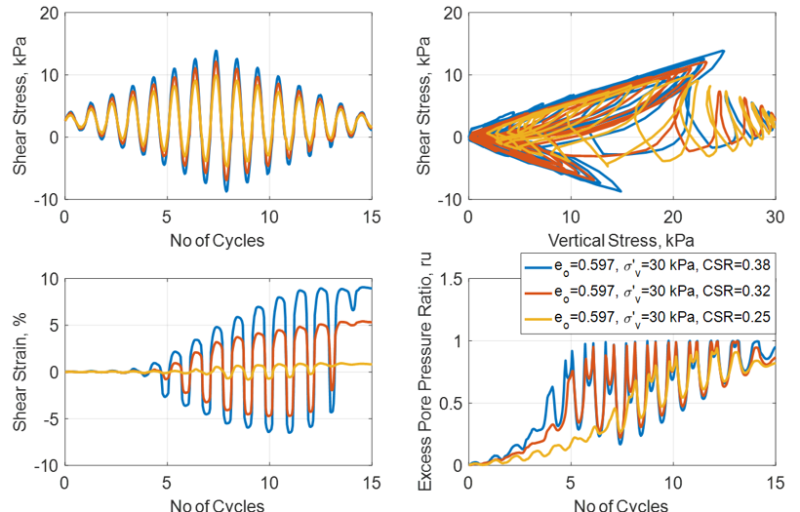Liquefaction Experiment and Analysis Projects (LEAP)
Liquefaction Experiment and Analysis Projects (LEAP) (Prof. Manzari)
A thorough understanding of the stress-strain-strength response of liquefiable soils is the key part of the assessment of geo-structures that contain of liquefiable soils or structural systems founded on liquefiable soils. As part the Liquefaction Experiments and Analysis Projects (LEAP), an international research collaboration, researchers at the George Washington University conducted an extensive series of monotonic and cyclic tests on Ottawa F65 sand.
A key outcome of this research was to establish the critical state of Ottawa F65 sand and to map the liquefaction resistance of this soil for a variety of densities, confining stresses, and initial shear stresses.
The results of these experiments have been widely used for calibration of soil constitutive models and subsequently in the LEAP type-A and type-B prediction exercises in which earthquake-induced lateral spreading of mildly sloping ground and seismic response of sheet pile structures were investigated by the collaborating centrifuge modeling laboratories across the world.


